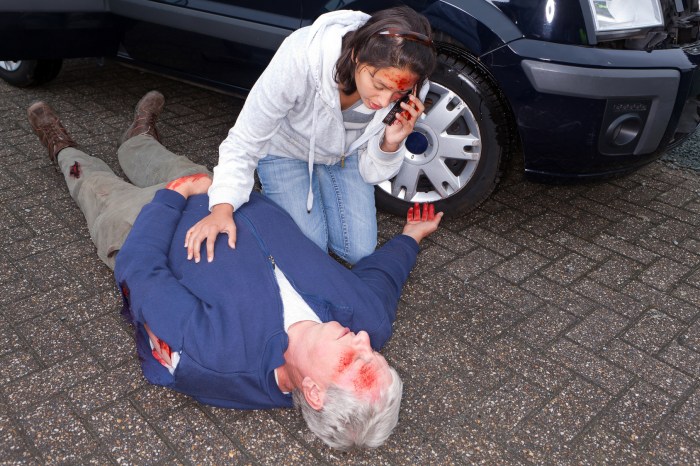The sudden and tragic loss of a loved one in a car accident can be devastating. If the accident was caused by another’s negligence, understanding wrongful death claims empowers you to seek justice and financial compensation. This guide explores the intricacies of wrongful death lawsuits, equipping you with the knowledge to navigate the legal process effectively.
Defining Wrongful Death Car Accidents
A wrongful death car accident occurs when a person’s death results from the negligence or intentional act of another individual or entity. To establish a wrongful death claim, the plaintiff (the person filing the lawsuit) must prove four key elements:
- Duty of Care: The defendant (the party being sued) owed a legal duty to act with reasonable care towards the deceased.
- Breach of Duty: The defendant breached their duty of care through their actions or omissions.
- Causation: The breach of duty directly caused the deceased’s death.
- Damages: The surviving family members have suffered financial or emotional losses as a result of the death.
Examples of Wrongful Death Scenarios:
- Drunk driving accident: A driver under the influence of alcohol causes a collision, resulting in the death of another motorist.
- Red light violation: A driver disregards a red light and crashes into another vehicle, fatally injuring the occupant.
- Defective vehicle: A malfunctioning car part leads to an accident that claims the life of the driver.
Determining Liability:
Identifying the responsible party and proving their legal culpability are crucial steps in a wrongful death claim. This process typically hinges on legal principles like negligence and recklessness.
- Negligence: Failure to exercise reasonable care in a situation where such care is expected. To prove negligence, the plaintiff must demonstrate:
- Duty of care existed
- Breach of duty occurred
- Breach caused the death
- Damages were suffered
- Recklessness: A more severe form of negligence involving intentional disregard for the safety of others. It often involves deliberate misconduct exceeding mere carelessness.
The Legal Process:
Filing a wrongful death lawsuit involves a structured process with specific roles for each party involved:
- Plaintiff: The party initiating the lawsuit, typically a family member or legal representative of the deceased. They hold the burden of proving the defendant’s negligence caused the death and establish the extent of their damages.
- Defendant: The party against whom the lawsuit is filed, usually the driver or entity responsible for the accident. They can contest the plaintiff’s claims, present defenses, and provide evidence supporting their position.
- Legal Counsel: Attorneys represent either the plaintiff or the defendant and play a critical role in navigating the legal process. They offer legal advice, prepare and file legal documents, and represent their clients in court.
Statute of Limitations:
Each state enforces a specific time limit, known as the statute of limitations, within which you must file a wrongful death lawsuit. This timeframe usually begins from the date of death. Failure to adhere to this deadline can have severe consequences, potentially resulting in dismissal of the case and loss of the right to seek compensation. Consulting with an attorney promptly after a wrongful death is essential to ensure timely filing.
Consequences of Missing the Deadline:
- Case dismissal: The court may dismiss the lawsuit, barring you from seeking compensation.
- Loss of compensation: The opportunity to recover financial losses is forfeited.
- Inability to hold the responsible party accountable: Justice may not be served.
Insurance and Wrongful Death Claims:
Insurance coverage plays a significant role in wrongful death car accidents, offering financial support to surviving family members. Several types of insurance may be relevant:
- Liability Insurance: Legally mandated in most states, this covers the at-fault driver, providing compensation to victims or their families for damages such as medical expenses, lost income, pain and suffering, and funeral costs.
- Uninsured/Underinsured Motorist Coverage: Protects victims if the at-fault driver has no insurance or insufficient coverage. This optional but highly recommended coverage can be a lifesaver.
- Personal Injury Protection (PIP): Provides compensation for medical expenses and lost wages to the victim, regardless of fault. Typically included in auto insurance policies, it can be helpful even if the other driver is uninsured.
Filing an Insurance Claim:
To file an insurance claim, contact the at-fault driver’s insurance company and provide details of the accident. The company will investigate the claim and determine the compensation owed.
Emotional and Psychological Impact
The emotional and psychological toll of a wrongful death car accident can be immense and long-lasting. Surviving family members may grapple with a wide range of emotions, including:
- Grief: Profound sadness and sorrow over the loss of a loved one.
- Anger: Directed towards the person responsible for the accident or the seemingly unfair nature of the situation.
- Guilt: Questioning whether something could have been done differently to prevent the accident.
- Disbelief: Difficulty accepting the reality of the loss.
- Depression: Feelings of hopelessness and despair.
These emotions can manifest in various ways, including:
- Difficulty sleeping
- Loss of appetite
- Withdrawal from social activities
- Difficulty concentrating
- Flashbacks or nightmares
Coping Mechanisms
While the pain of losing a loved one never truly fades, there are ways to cope with the emotional and psychological impact of a wrongful death car accident:
- Seeking professional help: Therapists or counselors can provide a safe space to express emotions, process the loss, and develop healthy coping mechanisms.
- Connecting with others: Sharing experiences and emotions with others who have also lost loved ones can offer a sense of support and understanding. Support groups or online forums can be valuable resources.
- Self-care: Prioritizing physical and mental well-being is crucial. Engaging in activities like exercise, healthy eating, and getting enough sleep can help improve your overall resilience.
Legal Representation
The legal complexities surrounding wrongful death claims necessitate seeking legal representation from an attorney who specializes in personal injury law. An experienced attorney can:
- Investigate the accident: Gather evidence to establish the cause of the accident and identify the responsible party.
- Determine the value of your claim: Assess the extent of your damages, both financial and emotional, to ensure you receive fair compensation.
- Handle communication with the insurance company: Negotiate with insurance companies on your behalf to secure a fair settlement.
- Represent you in court: If necessary, your attorney will represent you in court and advocate for your rights throughout the legal process.
Conclusion
The sudden loss of a loved one in a preventable car accident is a devastating experience. Understanding your rights and the legal process empowers you to seek justice and financial compensation. This guide provides a foundational understanding of wrongful death claims. If you have suffered such a loss, remember:




